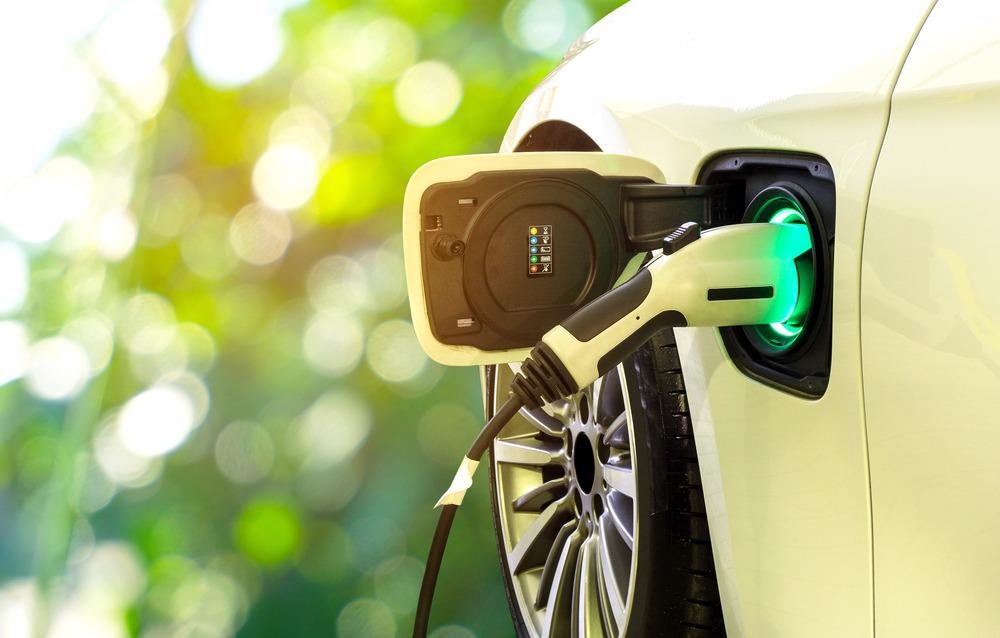
Image Credit: Smile Fight/Shutterstock.com
Today, there is growing interest in electric vehicles (EVs) as government bodies and companies become under increasing pressure to cut carbon emissions, having been typically expelled by fossil-fuel guzzling internal combustion engine (ICE) vehicles. Lesser known are the important components behind the scenes which can make electric vehicles more efficient and environmentally friendly - this all boils down to lubricants.
Electric vehicles (EVs) were first invented in 1831 and were commercialized in the late 19th century. Their interest peaked during the oil crisis of 1973 and in recent years due to concerns around climate change.
Conventional vehicles with an internal combustion engine (ICE) differ from electric ones due to the on-and-off control of the internal combustion engine, while electric vehicles operate on electrical motors.
In the market, ICEs and EVs have their own pros and cons. ICEs have up to 40% thermal efficiency while EVs can achieve 90% due to fewer losses. ICEs release greenhouse and toxic emissions, while EVs are zero-emission. One setback for EVs, however, is low reliability due to high battery charging time, less charging stations, and lower range. Finding suitable lubricants can aid their reliability.
The Importance of Lubricants in EVs
Lubricants play important roles in all vehicles, but EVs have unique lubricant requirements. The substances are applied for the friction and wear protection of seals, bearings, and gears and they also support electrical components such as car battery coolants, gear oils, wheels and brake fluids. Many standards must be met, as the fluid should have optimal electrical and thermal properties to achieve energy efficiency and reliability for the given electric vehicle.
There is a growing demand for lubricants with optimal electrical and thermal properties that reduce wear and damage to vehicle electronics and provide ideal fluidic performance. However, there remains a research challenge in achieving high performance and reliability while retaining energy efficiency.
Finding the ‘Best Fit’ for the Vehicle
In EVs, due to their electric and thermal properties, these liquids can reduce noise, vibration, and harshness, which can all damage a vehicle. When thermal conductivity is optimal, they improve overall efficiency.
EV lubricants have had a 17% rise in efficiency compared with traditionally used transmission oil. For further improvement, there should be a higher resistance to copper corrosion and compatibility with polymers in the machine’s electronics. The performance of EVs depends critically on the suitability of the lubricants for achieving energy efficiency and reliability. Research on viscosity is particularly important. Research by Gupta (2021) previously reported 17% efficiency for a low viscosity oil compared with factory transmission oil.
The most popular lubricants seen in the market include mineral-based oils with various additives and synthetic-based oils because of their lubricity and thermal, oxidative stability. Recent advancements offer bio-lubricants, as well as nanotube-based and mineral oil-based lubricants. Bio-based lubricants have been modified for high thermal stability and oxidative stability with additives for friction, showing they can perform better than traditional lubricants.
As explained by the authors of a review published by Frontiers in Mechanical Engineering, “Performance parameters are critically dependent on the properties of lubricants that are crucial for energy efficiency and reliability.”
To determine the best options, the thermal properties of the substance must be tested using a controlled heat source and a temperature monitoring system.
Unique Lubricant Demands for Electric Vehicles
It is challenging to find the best fit for the original equipment of EVs, as the manufacturers have their own unique motor designs. Each model requires a unique type of lubricant.
To add to the demands, EV lubricants have more technical requirements than those of ICEs, which are needed to improve anti-wear, friction reduction, efficiency, electrical compatibility, and insulation. Electric motor and battery pack cooling must be considered too.
Due to the smaller combustion engine in EVs, heat stability is a greater requirement, and insulation properties must be considered. Liquids must be the right velocity to minimize friction loss. The viscosity must also be low enough to avoid leakage from the equipment. Electrical properties must be maintained to avoid electrical losses in the system.
Taking the Heat
Lubricants must have good copper compatibility since components inside EVs are commonly made of copper. This helps to avoid breakage, swelling or cracking. Higher torque in EVs could also cause more wear problems compared with ICEs.
The high acceleration of EVs makes it challenging for lubricants to remain stable at high temperatures. They must withstand temperatures as high as 180 ◦C. Under such extreme temperatures, oxidation can be modified with the use of appropriate additives.
To find the ideal lubricant for EVs, all these diverse requirements must be taken into account and tested. At the same time, the substances need to avoid altering mechanical properties in the system such as tensile strength and crack resistance. Optimal electric properties help to prevent electrical damage at bearings in EVs. Trial tests will be needed to find the optimal lubricant for specific EVs.
References and Further Reading
Bouvy, C., Baltzer, S., Jeck, P., Gißing, J., Lichius, T., and Eckstein, L. (2012). “Holistic vehicle simulation using modelica-an application on thermal management and operation strategy for electrified vehicles,” in Proceedings of the 9th International MODELICA Conference; September 3-5; 2012 (Munich: Linköping University Electronic Press). https://www.researchgate.net/deref/http%3A%2F%2Fdx.doi.org%2F10.3384%2Fecp12076263
Chen, Yan et al. “Performance Characteristics of Lubricants in Electric and Hybrid Vehicles: A Review of Current and Future Needs.” Frontiers in Mechanical Engineering. (2020).
Gupta, A. (2012). Characterization of Engine and Transmission Lubricants for Electric, Hybrid, and Plug-in Hybrid Vehicles. The Ohio State University.
He, F., Xie, G. & Luo, J. Electrical bearing failures in electric vehicles. Friction 8, 4–28 (2020). https://doi.org/10.1007/s40544-019-0356-5
The new age of lubricants for electric vehicles [Online]. Electric Hybrid Vehicle Technology. Available at: https://www.electrichybridvehicletechnology.com/features/the-new-age-of-lubricants-for-electric-vehicles.html (Accessed: 22 March 2021).
Disclaimer: The views expressed here are those of the author expressed in their private capacity and do not necessarily represent the views of AZoM.com Limited T/A AZoNetwork the owner and operator of this website. This disclaimer forms part of the Terms and conditions of use of this website.